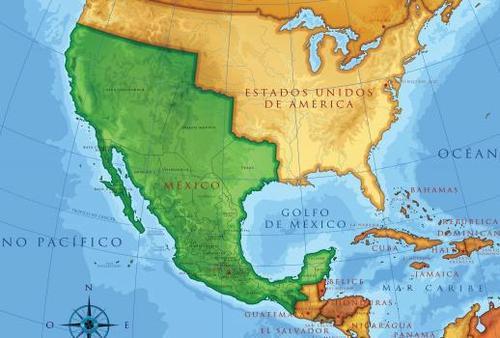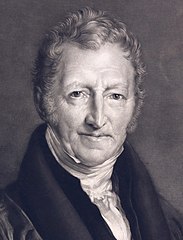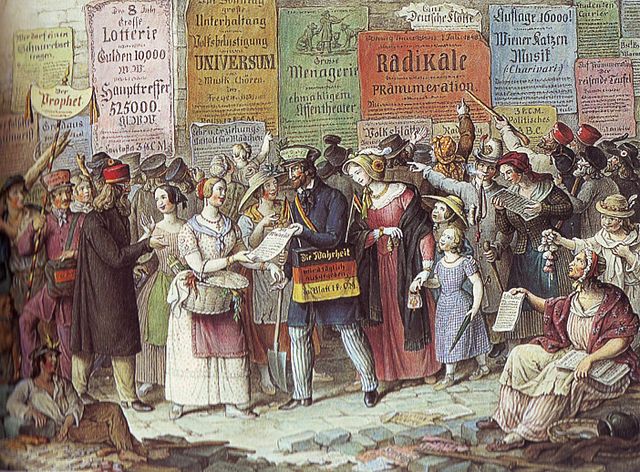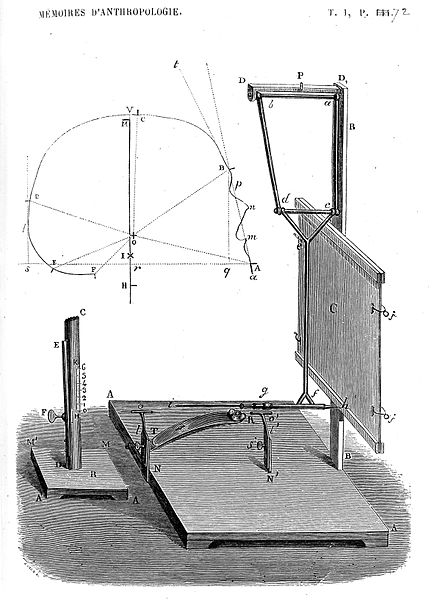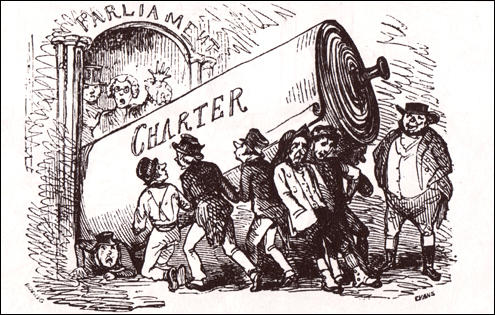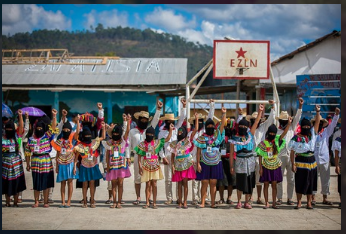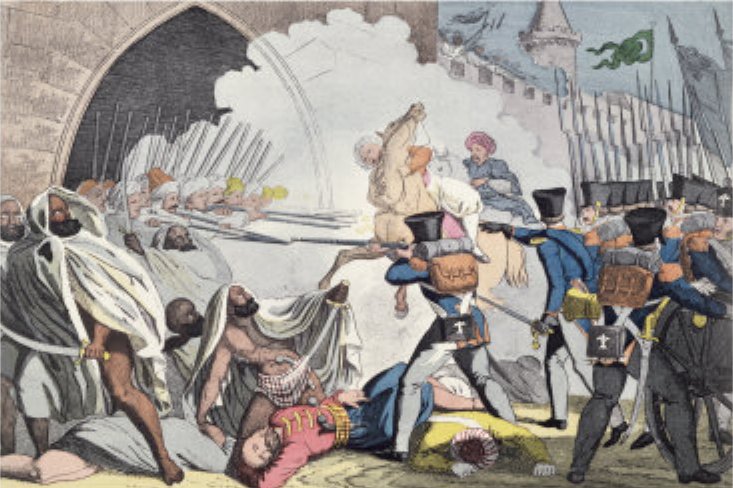This episode is about how the US became the territorial empire that it is. We cover the Mexican-American War 1846-8, as well as the repeat performance when France invaded under Louis Napoleon. We end talking about US expansionism and its many 19th century wars with Indigenous nations.
Author: Justin Podur
3.1% of Humans on 7% of the Planet – A review of Planet of the Humans
Around the 88th minute of Jeff Gibbs and Ozzie Zehner’s April 2020 film Planet of the Humans, there is a quick cut to footage of Indigenous protesters of the Dakota Access Pipeline, showing that the camp was bulldozed by a machine built by one of the corporate sponsors of an Earth Day event – Caterpillar.
If you want to learn about that pipeline, in 2019 Nick Estes, a professor based at the University of New Mexico from the Lower Brule Sioux Tribe, published Our History is the Future: Standing Rock versus the Dakota Access Pipeline, and the Long Tradition of Indigenous Resistance. Those protesters who faced the bulldozers in the seconds- long sequence were the Water Protectors based at the Standing Rock Reservation in North Dakota, whose incredible movement faced the whole might of US corporate power and colonialism in 2016, inspiring people around the world that year. Estes, who runs a podcast called Red Nation, links the resistance of the #NoDAPL moment to the centuries of Indigenous resistance to colonialism. The Red Nation podcast is a remarkable resource weaving liberatory and anti-imperialist politics from many directions. You won’t find reference to it in Planet of the Humans.
Back to it. Around minute 56, Gibbs, the film’s director and narrator, visits a solid waste incinerator plant in L’Anse Michigan, and talks to local activist Catherine Andrews. Gibbs tells her this isn’t just an ordinary town, and Andrews agrees: “It’s Lake Superior,” she says. “It’s our Lake. A very sacred place to many people.” If you look at the maps produced by Sam Hillard you can see that sacred place was stolen from the Chippewa Anishnaabe, who use the name of the lake (Gichi Gami) in the name for their people (Gichigamiwininiwag). To them, no doubt the lake, and the territory, is sacred. Under the leadership of Chief Buffalo, the Chippewa fought to stay in the region when US president Zachary Taylor, veteran of the invasion and occupation of Mexico from 1846-48, tried to remove them west of the Mississipi in 1850, killing hundreds of Indigenous people through deliberate starvation at Sandy Lake (sanitized in US historical memory as the “Sandy Lake Tragedy”).
Let’s start back at the beginning of the film. The first question Gibbs asks in his people-on-the-street interviews is, “How long do humans have left?” Planet of the Humans is based on an apocalyptic politics, a politics of what one group of leftist writers called Catastrophism in a 2012 book. One of the book’s contributors, Eddie Yuen, points out that the environmental movement does not have adherents proportionate to its apocalyptic predictions – catastrophism, it turns out, is not the most politically compelling stance.
Later on in the film, around minute 46 (a point I’ll return to) one of Gibbs’s (uniformly white, uniformly American) expert interviewees, anthropologist Steven Churchill, spells out what this apocalypse means to the filmmakers: “without seeing some sort of major die off in population,” he says, “there’s no turning back.”
On the topic of apocalyptic die-offs: Spain, Portugal, England, and their settler colonies (notably the United States, where Planet of the Humans is exclusively set) committed a series of genocides killing more than 90% of the Indigenous peoples of the Americas. Those genocides are what made land available for the filmmaker to experiment with sustainable living on a homestead in Michigan centuries later. Settler-colonialism is why Okhay Owingeh Pueblo science fiction writer Rebecca Roanhorse noted that Indigenous people have “already survived an apocalypse.” The history of that apocalypse is available to anyone willing to read, whether it’s in Gerald Horne’s books the Dawning of the Apocalypse, and Apocalypse of Settler Colonialism, David Stannard’s American Holocaust, or Roxanne Dunbar Ortiz’s Indigenous People’s History of the United States. Indigenous understandings of the world and the land are available from Leanne Betasamosake Simpson’s As We Have Always Done, Winona LaDuke’s All Our Relations, and many others. Perhaps the most urgent imperative is expanding and restoring the Indigenous land base, as outlined by the late Arthur Manuel in the Reconciliation Manifesto. That action – summarized in the slogan “Land Back” – would be the most efficient way to reverse the destructive processes leading to climate change.
You will find no awareness of this history, indeed no knowledge of any Indigenous or Black or non-US writer on any topic, in Planet of the Humans. Which would be fine. But the film was not called “7% of the Planet and 3.1% of the Humans” (the US landmass and the percentage of humans that are the white Americans who are interviewed for the film). It was called Planet of the Humans.
Executive Producer Michael Moore, who traveled to several countries and met and spoke to numerous non-US humans (even communist humans) in Where to Invade Next and Sicko, should have helped expand the range of humans spoken to for the film. Alas.
From minute 45-52, each one of its experts is interviewed introducing a revolting level of Malthusianism into the film’s core. Richard Heinberg says there are “too many human beings using too much too fast.” Steven Churchill, the worst of them, says “as a global community we really need to start dealing with the issue of population… species hit the population wall a lot and then they crash. I mean, that’s a common story in biology…. it’s the natural order of things… a large percentage of that number is supported by industrial agriculture which is heavily subsidized by oil… without seeing some sort of major die off in population, there’s no turning back.” Nina Jablonski says “population growth continues to be the herd of elephants in the room.” Steven Running is asked if humans are “smart enough to regulate our own presence.” Then Gibbs himself takes the microphone and goes solidly into population bomb Malthusianism, talking about the “population explosion” of the 1800s and the “total human impact” having risen by 200 times – as if the impact of an Indigenous person in the forests of India is in any way comparable to the impact of a Jeff Bezos, an Al Gore, or a Vinod Khosla. “We humans,” he continues, “are poised for a fall from an unimaginable height. Not because of one thing, climate change alone, but all the human-caused changes the planet is suffering from.”
The over-reach here is hair-raising. The population “explosion” Gibbs cites began at the peak of colonialism over Asia and Africa and after the aforementioned apocalypse of settler-colonialism first struck the Indigenous peoples of the Americas. A miniature version of that population “explosion” has recently occurred with the displacement of 37 million people due to US terrorist wars in Asia. The most basic, elementary insights in the field of demographics are 1) that war and displacement cause population increases and 2) that female education and empowerment stabilize birth rates at around 1-2 children per woman (as communist jurisdictions like Kerala and Cuba have shown). But you won’t find any of these basics in Planet of the Humans. Instead, the film gives us a series of white Americans sounding off about “overpopulation” as if none of this knowledge exists. As if Betsy Hartmann hadn’t written Reproductive Rights and Wrongs: The Global Politics of Population Control in 1995. As if Ian Angus and Simon Butler hadn’t written Too Many People? Population, Immigration, and the Environmental Crisis in 2011. This panel of talking heads gives us pure Malthusianism, one of the cruelest ideologies of 19th century colonial England, written to justify the British Empire’s famines in India and Ireland. If not “7% of the planet and 3.1% of the humans”, this film might better be called Planet of the Dehumanized, following reviewers Gert Van Hecken and Vijay Kolinjivadi.
Not every environmental documentary has to do everything, and even in a settler-colonial framework, sincere environmentalists can make some good points. As Max Blumenthal’s investigation at the Greyzone shows, Gibbs and Zehner’s criticisms of the co-optation of the environmental movement by extractive industry and tycoons like Blood, Gore, Branson, Khosla, and Grantham hold up. So, too, do the film’s critiques of the problems with solar and wind energy at scale: intermittency, rare earth mining, the devastation of biofuels, and the destructiveness of corporate infrastructure megaprojects. There is indeed a campaign to corrupt and co-opt the environental movement and it has been successful, including in introducing the very mentality that Gibbs criticizes as “the profit motive”, the “takeover by capitalism” of the movement (mentioned at minute 80).
So yes, as reviewers Van Hecken and Kolinjivadi (and Max Blumenthal) point out, the film was roundly criticized by many environmentalists (including the co-opted) – who argued, mainly, that the intermittency and efficiency problems of green technology were on the way to being solved. But the worst problems with the film are premises shared by the filmmakers and many of their critics.
Talking about “humanity” and its fall from an “unimaginable height”, Gibbs asks: “So why are bankers, industrialists, and environmental leaders only focused on the narrow solution of green technology? Is it the profit motive?”
Whatever the solution is going to be, Gibbs imagines it will come from “bankers, industrialists, and environmental leaders.” Not – notably – from governments. And so, at a stroke, the most powerful tool that could be brought to bear on the problem is excluded. Instead of finding an expert on industrial policy, planning, economic history – someone from any other part of the world where the government plays a different role in planning and directing economic activity – Gibbs talks to a social psychologist named Sheldon Solomon who quotes Camus and suggests that the solution is that we come to “grips with our anxiety about death and life.”
To Gibbs and Zehner, it isn’t a system of rationing, a government-coordinated, egalitarian plan that can get us to environmental stability. It is, at minute 88, “awareness… awareness alone can begin to create the transformation. There is a way out of this… we humans must accept that infinite growth on a finite planet is suicide. We must accept that our human presence is already far beyond sustainability and all that that implies.”
To repeat: after doing an adequate job of showing the destructiveness of capitalist accumulation and philanthropic movement co-optation, the film suggests that the solution is “awareness alone.”
Nonsense. Serious readers can close Youtube at this point and crack open Stan Cox’s Green New Deal and Beyond, and get with a program called “cap and cope.” It goes like this: End subsidies to fossil fuels. Lock companies out of public lands. Ban fracking. Bust pipelines. Stop oil and gas exports. Deprive fossil fuel companies of investment. Put an impervious cap on the total supply of fossil fuel that ratchets down year by year until fossil fuels is zero. Dismantle the US military and its militarized police. Ration the means of survival to ensure everyone gets enough and ensure that the sacrifices that are made are equal. In other words, create a system where human ingenuity is used in the service of the planet and of humans and not in the service of circumventing the weak, industry-compromised regulations of the American oligarchy.
US-centrism means ignoring other examples of epic human effort to overcome seemingly impossible odds. The Soviet Union, after a devastating civil war and several famines, rebuilt its industry and defeated the most formidable military machine ever assembled – that of Nazi Germany – using economic planning. In our time, China has eliminated poverty within its borders by using economic planning. But a US film steeped in settler-colonial premises would not be interested in achievements from those humans on the wrong side of American ideologies.
Fredric Jameson is quoted saying that it is easier to imagine the end of the world than the end of capitalism. Planet of the Humans is a 94 minute unfolding of that idea, a caricature of the failure of imagination.
AEP 68: The Donziger Case and the Assange Trial
Joe Emersberger and I talk about the Steve Donziger case, in which an environmental lawyer who won a landmark settlement against one of the world’s most powerful oil corporations (Chevron) is now disbarred and under house arrest, persecuted by a pro-business judge and the entire US corporate-legal nexus.
In the second half, we talk about the Assange trial, in which the weight of two countries’ judiciaries (the US and UK) are being brought down to try to crush a journalist, for doing journalism, and all the sleazy journalists running for cover claiming that they don’t like his personality.
I referred especially to Debunking All the Assange Smears by Caitlin Johnstone, and Joe’s article Manufacturing Disgrace: Reuters distorts Chevron vs. Donziger.
Civilizations 17: The 1848 Revolutions in Europe
There were many revolutions in Europe in 1848, with complex and contradictory results and lessons learned by all parties for future revolutionary rounds. We spend most of the time in France, a bit of time in Prussia, and do a quick tour of the rest.
Can We Address That British Eugenics Scandal?
The racist analogies have not held up for centuries, and yet they continue to crop up from unqualified and prominent figures today.
British Prime Minister Boris Johnson has been known to have an interest in eugenics, but despite the persistence of support for this discredited idea over the years, eugenics is a scientific and moral failure.
In February, an adviser to Johnson resigned when some old racist posts he wrote in 2014 emerged. The contractor, Andrew Sabisky, called himself a “superforecaster” by trade and trafficked in theories of race and intelligence. Footage resurfaced of Boris Johnson talking about genetic inequality and IQ in 2013. Articles announce that “eugenics is back” every few years (2018, 2016, or 1989), so it is probably the case that eugenics never left. With the political right in the ascendant in many parts of the world, it is inevitable that the pseudoscience of eugenics would be on the rise with it.
Some academics will also follow, as they have from the days when craniometry justified the British Empire. Richard Dawkins, a retired Oxford biologist active on Twitter where he was called a “tedious old racist” in 2018, tweeted in February what was likely a reaction to Sabisky’s eugenics scandal:
“It’s one thing to deplore eugenics on ideological, political, moral grounds. It’s quite another to conclude that it wouldn’t work in practice. Of course it would. It works for cows, horses, pigs, dogs & roses. Why on earth wouldn’t it work for humans? Facts ignore ideology.”
The comparison of human “races” to dog breeds is so pervasive that it should be answered comprehensively, and the tweet should be picked apart in detail. The comparison has nothing to do with science, as I will show, and should be abhorred by the scientifically minded.
Dawkins’ posture is one where he claims to want to distance himself from eugenics “on ideological, political, moral grounds,” while suggesting that the “facts” are in favor of eugenics. The “facts” in this trope aren’t a matter of argument and evidence but some kind of secret magic that only those with a strong stomach can handle. The less brave and bright resist the “facts” out of fear that they will clash with our “ideological, political” commitments. But as far as eugenics goes, there are no “facts”: eugenics has been an intellectually corrupted project from its inception in the 19th century. Eugenics comes to us from a time when the British Empire was plundering the world and its proponents went looking for evidence to prove racist conclusions they already believed. No one who understands science fears that racists will abuse eugenicist “facts.” As anthropologist Jonathan Marks writes in his book Is Science Racist?: “[T]here is no fear of potential abuse of knowledge. There is simply the collection and dissemination of intellectually corrupted information. That is the legacy of scientific racism.”
Like climate deniers who work in fields of science other than climate and make public statements to try to pretend there is no consensus on the topic, Dawkins used his authority as a retired biology lecturer to tweet claims outside his area of expertise. A scientific organization that has authority on the topic, the American Society of Human Genetics (ASHG), made the following three points in a 2018 statement:
“Genetics demonstrates that humans cannot be divided into biologically distinct subcategories”
“Genetics exposes the concept of ‘racial purity’ as scientifically meaningless”
“[T]he invocation of genetics to promote racist ideologies is one of many factors causing racism to persist”
ASHG
Dawkins’ defenders might now argue that his tweet had nothing to do with racism and that it is just about eugenics. That the entire pseudoscientific history of eugenics, pervaded and corrupted with racism, is irrelevant to his claims about “practice” and “facts,” by reference to other species. Dawkins mentioned the breeding of “cows, horses, pigs, dogs & roses.” There are different flaws when each of these comparisons is put under the microscope.
Roses? Spraying fertilizer on roses helps them—does it help us? There is almost nothing that works for the plant Rosa gallicanae that also works for us, so that can be quickly dispensed with.
Cows and pigs are bred to be docile, to pack on as much edible meat as possible in a short amount of time, and ideally to go quietly to their deaths. Unless Dawkins envisions a cannibal future, cows and pigs are irrelevant to this analogy with humans. (It is worth mentioning that these are also two of the planet’s three most abused animal species—the chicken, of whom 69 billion were slaughtered in 2018 compared to 1.5 billion pigs and 302 million cows, wins this heart-rending competition.)
That leaves horses and dogs.
Horses were once our choice animal for transportation. Now that we use fossil fuels, most horses today are involved in what the Equine Heritage Institute calls “recreational horse use,” in which the horse is made to carry a person on its back and run fast for our entertainment.
With the other animals eliminated, Dawkins’ argument comes down to the comparison between humans and dogs. Dog breeding has been done for many thousands of years, and dogs have been bred for many jobs.
Does it “work”? Specifically, since the idea is if it works for dogs it could work for humans, does breeding work for the species being bred (dogs, or in Dawkins’ implicit proposal, humans)? Of course not. From the perspective of the dog, it is a nightmare.
A couple of popular internet memes sum up what thousands of years of dog breeding have achieved for the bred species. In one, a stunning photograph of a wolf is shown thinking: “Humans at a campfire… It’s cold and I’m starving, maybe I should ask for some scraps. What’s the worst that could happen?” Below, captioned “10,000 years later,” is a photo of a pug in a knitted hat made to look like a birthday cake. Similarly, photos of a wolf and a pug are used in another meme, where the photo of the wolf says “product of evolution,” and the photo of the pug says “product of intelligent design.”
This latter meme reveals the irony that Dawkins of all people should make the eugenicist claim that dog breeding “works.” In The God Delusion as well as much other work, Dawkins’ principal argument against the existence of God is that evolution can produce more complex forms of life (including human intelligence) than any divine intelligence could. Similarly, the artificial selection of dog breeding has—as the humorous memes demonstrate—propagated traits that are disadvantageous to dogs compared to what natural selection was able to do for the wolf.
The 2008 BBC documentary “Pedigree Dogs Exposed” investigated the UK’s Kennel Club and the breed standards that have led, by breeding exclusively for appearance, to a dog population with hundreds of genetic diseases. What is called “breeding” to achieve these traits is better called “inbreeding,” with brother-sister, mother-son, father-daughter, and father-granddaughter matings regularly made—there are no incest taboos, no health considerations, and no concern for genetic diseases made in awarding prizes at dog shows. Perfectly healthy puppies—like Rhodesian ridgeback puppies that don’t have the ridge, which actually brings with it additional health risks—are killed at birth to maintain the “purity” of the breed. Kennel Clubs and breeders were offended by comparisons of dog breeding to racism, but the shared history is beyond dispute. Kennel Clubs were founded in the late 19th century, after Carl Linnaeus, Comte de Buffon, and Arthur de Gobineau had laid the intellectual foundations of scientific racism, and there was the freest exchange of ideas between eugenicists and dog breeders. Also in the late 19th century, Canada’s first prime minister, Sir John A. Macdonald, whose statues have had travails in Montreal and Toronto leading to scolding and arrests, said that “the Aryan races will not wholesomely amalgamate with the Africans or the Asiatics… the cross of those races, like the cross of the dog and the fox, is not successful.”
In “Pedigree Dogs Exposed,” the documentarians show old photos of breeds like German shepherds and bulldogs that had long legs and upright postures, contrasting them with the top dogs in those breeds today, whose legs get shorter and shorter as their mobility decreased. Those are the “show dogs.” But “working dogs” aren’t beyond question either. Bulldogs were bred, as the name indicates, for fighting with bulls for entertainment. Pit bulls, for fighting one another. Dobermans, for protecting a rent collector. Is this work that should be done? In reality, breeding dogs for these jobs was of dubious benefit to human society; trying to make the case that it was beneficial to the dogs, as a species, is preposterous. And if that is true for dogs bred solely for work, how much sadder is it for the pedigree dogs bred solely to meet circular aesthetic criteria (one breeder, asked about the morality of killing puppies who lack the ridge, responded: “Well, if it doesn’t have the ridge, it’s not a ridgeback, is it?”)?
Perhaps Dawkins envisions a well-funded eugenics department that could overcome incest taboos and ethics reviews, as well as the small matter of human reproductive freedom, to use inbreeding to create human breeds. But what most eugenicists are really interested in is not such a scientific project. They are interested in the idea of racial differences in intelligence.
But dog breeds provide no insight into how this aspect would work for humans either. Dogs, the outcome of artificial selection, have breeds that can be identified by their genotypes. A paper about the differences between dog breeds and human “races” that appeared in the journal Evolution: Education and Outreach in July 2019 stated that about 27 percent of dogs’ genetic variation could be explained by breed. Humans are the outcome of natural selection, and most genetic variation occurs within human groups. Classifications of humans by genotype don’t match up with what racists think of as the different human “races.” The closest science can get to the racist position is the trivial point that people who are close together geographically are (relatively) close together genetically. And even this regional variation can explain only 3.3-4.7 percent of human genetic variation, according to the paper.
It is this regional variation that is being exploited by mail-order genetics companies like 23andMe, which Marks calls “science-lite,” because its users accept the findings they like and reject the ones they don’t, which is probably the intended way to use the test. As for “race,” there is no such thing, except for racism, which is the unscientific belief that there are such things as distinct human “races.”
So, is dog breeding successful? Dog breeding has been disastrous for the dog as a species. Does dog breeding provide evidence that eugenics could work? The analogy between dog breeds and human “races” is broken.
If racists want to push eugenics, the rest of us should realize that they do so without the backing of science, which has moved on, leaving the detritus behind.
This article was produced by Globetrotter, a project of the Independent Media Institute.
AEP 67: Haiti Arms Trade and The US State Department
I’m joined by Kira Paulemon of the Center for Economic and Policy Research (CEPR.net), co-author with Jake Johnston of a recent report about a State Department contract to a politically-connected firm in Haiti. We talk about the contract, the two years of demonstrations in Haiti, the current president’s rule by decree, contrasts with the US attitude towards earlier Haitian presidents, and talk a little bit about how CEPR approaches its research.
Civilizations 16: Chartism, Reformism, Police Origins, Irish Famine
We investigate Britain around 1848. Why was there no revolution? We look at the Chartist and Reform movements in Britain and in Canada, Robert Peel and the origins of modern policing, Australia and the early debates about how to create misery in prisons, the Irish famines and their repercussions.
AEP 66: Lopez Obrador takes on the Zapatistas
In Chiapas, Mexico, the Indigenous Zapatista rebels have raised the alarm about an intensification of paramilitary attacks on their communities. Manuel Rozental and I are joined by author John Gibler to talk about Mexican politics and how it is that a Mexican government led by a leftist president continues the historical pattern of dirty war against the Indigenous movement.
Civilizations 15: 1830-2 French Revolution, Algeria Colonization, Muhammad Ali of Egypt, and Slave Revolts in the Americas
Your Western Civilization course covers the French Revolution of 1830. But the Civilizations Series gives you that and Muhammad Ali of Egypt, France’s colonizing Algeria, and the slave rebellions of Denmark Vesey in South Carolina, Nat Turner in Virginia, and Sam Sharpe in Jamaica.
AEP 65: Thinking about teaching, through martial arts, with Shawn Zirger
A different angle this episode: my guest is my martial arts instructor, Shawn Zirger, who teaches Bruce Lee’s Jeet Kune Do and other martial arts at the Zirger Academy. We talk about Bruce Lee’s approach to knowledge, how martial artists think about cultural appropriation, the problem of trying to “find geniuses” when teaching, our own martial arts journeys, and quite a bit more.

